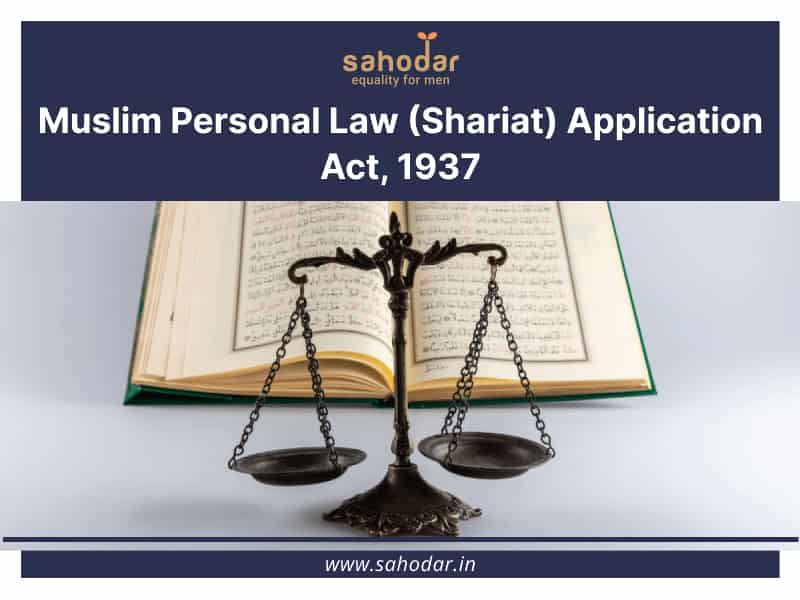Muslim Personal Law (MPL) is the guiding force for personal matters among Muslims, encompassing crucial aspects such as marriage, divorce, inheritance, and custody. Its foundation lies in Islamic jurisprudence, deeply rooted in the Quran and the Hadith (the sayings and actions of Prophet Muhammad). These sacred texts, along with the interpretations of Islamic scholars, form the bedrock of MPL.
The application of Muslim Personal Law varies across different jurisdictions, influenced by local customs and statutory laws that sometimes integrate secular legal frameworks. In this context, Muslim Personal Law (Shariat Act) remains a vital component of the legal systems governing personal matters for Muslims worldwide.
Origins of Muslim Personal Law (Shariat Act 1937)
The foundations of Muslim Personal Law trace back to the early Islamic period. The Quran provides essential guidelines for personal conduct, including marriage, family, and inheritance, which the Hadith further elaborates. Together, these texts form the backbone of Islamic law. As Islam spread across diverse regions, it absorbed local customs, leading to a rich and diverse set of practices within Islamic law.
This diversity, stemming from the blending of different cultures and traditions with religious tenets, is a testament to the richness and complexity of Islamic law.
Legislative Framework Muslim Personal Law Application Act 1937
In India, the Muslim Personal Law Application Act of 1937 formalised the application of Muslim Personal Law in personal matters, allowing Muslims to practice their religious customs within the broader Indian legal framework. The act serves as a key reference for courts when adjudicating personal matters such as marriage, divorce, and inheritance for Muslims. It plays a vital role in balancing religious traditions and secular legal principles in India’s pluralistic society.
Marriage under Muslim Personal Law (Shariat Act)
Nature of Marriage
In Muslim Personal Law, marriage (nikah) is a sacred contract between a man and a woman, establishing mutual rights and responsibilities. The essential elements of a valid marriage under Muslim law include:
- Proposal (Ijab): The formal offer of marriage.
- Acceptance (Qabul): The formal acceptance of the proposal.
- Witnesses: There are at least two witnesses to validate the marriage contract.
- Dower (Mahr): A mandatory payment by the husband to the wife, symbolising respect and commitment.
This contractual nature emphasises the importance of mutual consent and responsibility, distinguishing Islamic marriage from a sacrament, as seen in other religious traditions.
Polygamy
Muslim Personal Law permits polygamy, allowing a Muslim man to marry up to four wives, provided he can treat all equitably. However, this practice has sparked debates about gender equity and social justice. While men can have multiple wives, women are prohibited from marrying more than one man at a time. In modern contexts, many jurisdictions have placed legal restrictions on polygamy, reflecting evolving societal views on gender equality.
Divorce under Muslim Personal Law
Mechanisms of Divorce
Either spouse can initiate divorce (talaq) in Muslim Law, but the processes differ:
- Husband’s Right: The husband has the unilateral right to declare talaq, which dissolves the marriage immediately. This method requires no consent from the wife.
- Wife’s Right: The wife can initiate divorce through khula, which usually involves returning the dower to the husband. In some interpretations, the wife’s request for divorce also requires the husband’s consent.
Legislative Developments
The practice of instant triple talaq (talaq-e-bid) has been controversial, as it allows a husband to divorce his wife by repeating “talaq” three times in quick succession. In 2019, the Indian government passed a law criminalising instant triple talaq, signalling a significant legal reform aimed at protecting women’s rights and promoting more equitable divorce practices within Muslim Personal Law.
Inheritance Rights
Principles of Inheritance
Clear guidelines in the Quran govern Islamic inheritance law. Male heirs typically inherit twice the share of female relatives, a practice that has been subject to debates about gender equality. The rationale behind this division is often explained by the financial responsibilities traditionally placed on men within the family. Nevertheless, the Quran also allows for the creation of wills (waist), which enable a person to distribute a portion of their estate according to their wishes, as long as the prescribed shares are respected.
Reforms and Gender Equality
In response to modern calls for gender equality, several reforms have been introduced in different jurisdictions to address disparities in inheritance rights. Some legal systems have made provisions that allow women to claim equal shares, reflecting an ongoing dialogue between traditional Islamic inheritance law and contemporary ideals of gender equity.
Custody and Guardianship
Determinants of Custody
Custody disputes under Muslim Law are typically resolved with the child’s welfare in mind. Traditionally, mothers are granted custody of young children, while fathers are considered the primary guardians responsible for their upbringing. As children grow older, particularly boys, custody often shifts to the father, although this can vary based on the case’s specific circumstances.
Judicial Involvement
Judicial authorities are critical in resolving custody disputes, balancing religious principles with legal standards, and prioritising the child’s best interests. Courts often have to navigate the intersection of Muslim Law with secular laws, ensuring that decisions align with religious principles and contemporary child welfare norms.
Conclusion
Muslim Law remains an integral part of the legal systems governing personal matters for Muslims worldwide. Grounded in Islamic teachings, It addresses marriage, divorce, inheritance, and custody through a religious lens while evolving in response to societal changes and legal reforms. A deeper understanding of Muslim Personal Law is essential for navigating the Muslim communities’ legal and social frameworks. As societies continue to advocate for gender equality and legal reform, Muslim Personal Law reflects the dynamic interplay between tradition, modernity, and justice.

